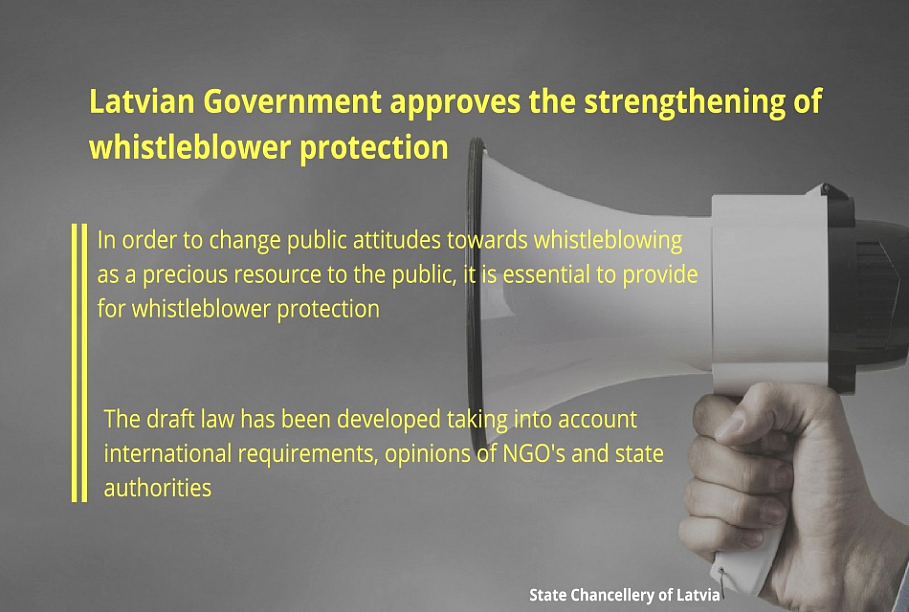The Whistleblower Act was introduced to ensure that public interest concerns are addressed in reporting violations observed at work, while also ensuring protection for the person who raised the alarm about violations of the public interest in his or her work environment. The whistleblower may be provided with state-provided legal aid, be exempted from legal costs and liability, and be paid compensation for losses or damage if necessary.
The report considered at the government meeting on January 21 indicated that although awareness of whistleblowing and its nature has grown in the past five years, it is still not sufficient and often inappropriate applications are received as whistleblowing reports.
The most common failing is that the information provided is not related to work or is about a personal dispute. Another important aspect is not always taken into account – preventing a violation must be in the interests of the wider community.
As indicated in the report, out of 2,314 reports submitted, only 652 were properly formatted as whistleblower reports.
During the period from May 1, 2019 to December 31, 2023, for which statistics have been compiled, whistleblowers contacted the Corruption Prevention and Combating Bureau (KNAB), the State Revenue Service, the State Labor Inspectorate, the State Police, the State Language Center, the Health Inspectorate, the Prosecutor’s Office, the State Audit Office, the Riga City Municipality, the Ministry of Smart Administration and Regional Development , the Ministry of Education and Science, and the Ministry of Welfare.
The report concludes that in the future the responsible institution in the field of whistleblowing should be the KNAB, as it also has the greatest practical experience in reviewing whistleblower reports, and it is also an independent institution that works with integrity issues and is well-known in society.
Until now, the responsible institution in the field of whistleblowing, or the whistleblower contact point, has been the State Chancellery. Now it is planned that from 1 January 2026, the whistleblower contact point will be the KNAB.
The report recommends strengthening the whistleblower contact point, focusing on public education and awareness-raising, and considering ways to strengthen whistleblower protection, such as providing additional support to those who have suffered adverse consequences. The report also suggests considering the possibility of paying financial compensation to whistleblowers for violations revealed as a result of whistleblowing.
Applications and whistleblower reports, 2019–2023
